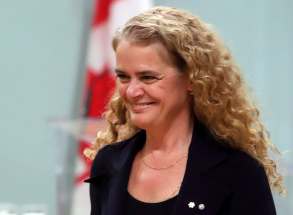Family reunification should be a priority, committee says
Read this article for free:
or
Already have an account? Log in here »
To continue reading, please subscribe:
Monthly Digital Subscription
$0 for the first 4 weeks*
- Enjoy unlimited reading on winnipegfreepress.com
- Read the E-Edition, our digital replica newspaper
- Access News Break, our award-winning app
- Play interactive puzzles
*No charge for 4 weeks then price increases to the regular rate of $19.00 plus GST every four weeks. Offer available to new and qualified returning subscribers only. Cancel any time.
Monthly Digital Subscription
$4.75/week*
- Enjoy unlimited reading on winnipegfreepress.com
- Read the E-Edition, our digital replica newspaper
- Access News Break, our award-winning app
- Play interactive puzzles
*Billed as $19 plus GST every four weeks. Cancel any time.
To continue reading, please subscribe:
Add Free Press access to your Brandon Sun subscription for only an additional
$1 for the first 4 weeks*
*Your next subscription payment will increase by $1.00 and you will be charged $16.99 plus GST for four weeks. After four weeks, your payment will increase to $23.99 plus GST every four weeks.
Read unlimited articles for free today:
or
Already have an account? Log in here »
Hey there, time traveller!
This article was published 19/09/2018 (2643 days ago), so information in it may no longer be current.
In the first government-ordered review of Child and Family Services legislation in 15 years, advocates have called for a major overhaul of the child welfare system that would make it a priority to help struggling parents, rather than taking their children away.
Manitoba has the highest rate of children in care of any province, approximately 90 per cent of whom are Indigenous. According to the last available report, there were 11,352 children in CFS care as of March 31, 2017.
Ways to improve
On Wednesday, a legislative review committee listed more than 60 ways the Manitoba government could improve its Child and Family Services policies, including:
– redefining what a “child in need of protection” means, i.e. differentiating in legislation between a “child’s need for support” as requested by parents or guardians, and a “child’s need for protection/intervention” if it’s determined children are being neglected or abused.
On Wednesday, a legislative review committee listed more than 60 ways the Manitoba government could improve its Child and Family Services policies, including:
– redefining what a “child in need of protection” means, i.e. differentiating in legislation between a “child’s need for support” as requested by parents or guardians, and a “child’s need for protection/intervention” if it’s determined children are being neglected or abused.
– focusing on keeping children with their families by legally requiring the following placement options (in order of priority): with a relative; with extended family member(s) living in the child’s community or a neighbour or other member of the child’s community (with consent of a relative); with extended family member(s) living outside of the child’s community, with whom the child, at the time of being taken into care, had a meaningful relationship; with individuals from a child’s culture; with individuals from another culture.
– ending birth alerts for pregnant girls and young women and replacing them with community-based, culturally appropriate services.
– ensuring youth who have been in CFS care are eligible to receive culturally-safe supports until they’re 25 years old and allowing youth ages 18 to 25 the option of opting back into an extension agreement to access supports.
– replacing the word “apprehension” in legislation with the phrase “separation from parents and caregivers,” plus including the terms “reunifcation” or “restoration,” to acknowledge a paradigm shift.
Source: Transforming Child Welfare Legislation in Manitoba: Opportunities to Improve Outcomes for Children and Youth
Last year, the province announced plans to reform CFS and appointed a legislative committee to make recommendations for change.
After four months of consultations with more than 1,540 people, the committee produced a 43-page report with more than 60 recommendations, including redefining what a “child in need of protection” means and ending birth alerts for pregnant women and girls.
The committee suggested the province consider making CFS authorities secretariats of Indigenous-led organizations, such as Manitoba Keewatinowi Okimakanak, the Southern Chiefs Organization and the Manitoba Metis Federation. It also recommended a complete financial audit of CFS “to evaluate the flow of money from the funding source to intended recipients.”
On Wednesday, Families Minister Heather Stefanson wouldn’t immediately promise to implement any of the recommendations.
“I’m not going to commit to anything at this stage, but certainly what we do know is that there is a need and a desire for reform in the system and so we will commit that there will be some legislative reform,” she said in an interview, adding “we could expect changes within the next year.”
In its report, the committee emphasized it doesn’t want to see the recommendations ignored.
“Committee members do not wish their efforts to become another report that is filed for consideration. Additionally, the committee wants to make it clear that the recommendations in this report are only a starting point towards meaningful, long-term child welfare reform,” the group wrote.
The committee was chaired by Rossmere MLA Andrew Micklefield and included seven members: Sherwood Armbruster, Diane Redsky, Michael Redhead Champagne, Joanne Crate, David Daniels, Natalie Daniels and Frances Chartrand.
Many of the committee’s recommendations echoed those penned by commissioner Ted Hughes in 2014 following an inquiry into the Phoenix Sinclair case. Phoenix was apprehended by CFS when she was born in 2000. Her mother and stepfather were later given the chance to parent her. They killed her when she was just five. The public inquiry exposed problems in the system, including a lack of oversight by her care worker.
On Wednesday, the provincial government said 92 per cent of the recommendations from the Hughes’ report into the circumstances surrounding Sinclair’s death were acted upon as of March 31. The remaining eight per cent are in progress.
Liberal MLA Jon Gerrard, who has long criticized the province’s high rate of newborn apprehensions, welcomed the report and urged the government to enact its recommendations.
Documents obtained by the Liberals under the Freedom of Information Act show more than 330 infants under the age of one month were seized in each of the last three years.
“We need to drop that number by at least half, and hopefully, better than that,” Gerrard said.
— With files from The Canadian Press
jessica.botelho@freepress.mb.ca
Twitter: @_jessbu
wfppdf:http://wfpquantum.s3.amazonaws.com/pdf/2018/31096_final_report.pdf|Final report:wfppdf









